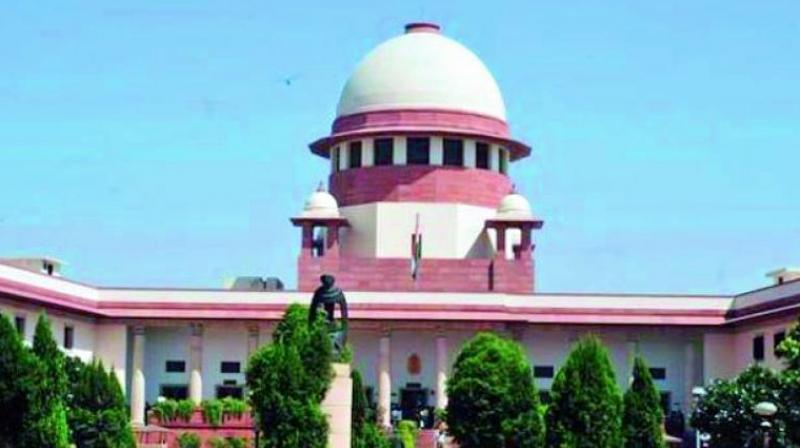No stay on SC/ST Act amendments
The bench said, No stay can be granted without hearing the government.

New Delhi: The Supreme Court on Friday refused to stay the amendments made to the Scheduled Caste and Scheduled Tribe (Prevention of Atrocities) Act at this stage to deny anticipatory bail to the accused and the scope for any preliminary probe into the complaints.
A bench comprising Justices A.K. Sikri and Ashok Bhushan, after hearing senior counsel Mohan Parasaran, issued a notice to the Centre seeking its reply within six weeks. When counsel pointed out that the amendments were made without removing the basis of the judgment, Justice Sikri agreed with him and said this required examination.
The bench also noted that it was not a validation act. When counsel pressed for a stay on the ground that an accused could not be eligible for anticipatory bail, the bench said, “No stay can be granted without hearing the government.”
In their petitions, Prathvi Raj Chauhan and Sanjeev Babanrao Bhor pointed out that the March 20 verdict providing for anticipatory bail and preliminary enquiry into the complaints. This judgment faced a nationwide protest by political groups just to take advantage in the upcoming election. In the face of protests, the government filed a review petition which is still pending.
Thereafter, the Centre, already under pressure from alliance partner and facing the prospect of antagonising a huge vote bank ahead of next year’s Lok Sabha polls, in a bid to derive some political mileage, decided to amend this act and restored its previous provisions in such a manner, so that an innocent can’t avail the right of anticipatory bail. It is pertinent to mention here that, in both the Houses of Parliament this amendment was passed by the voice vote, without any discussion or debate.
They argued that they are challenging the validity of section 18A of Scheduled Castes and Scheduled Tribes (Prevention of Atrocities) Act 1989 amendment Act 2018, whereby the fundamental right of the citizen has been taken away as new amended section 18 A bars application of Section 438 of the Code of Criminal Procedure (CrPC) as well as any judgment or order or directions passed by this court.

